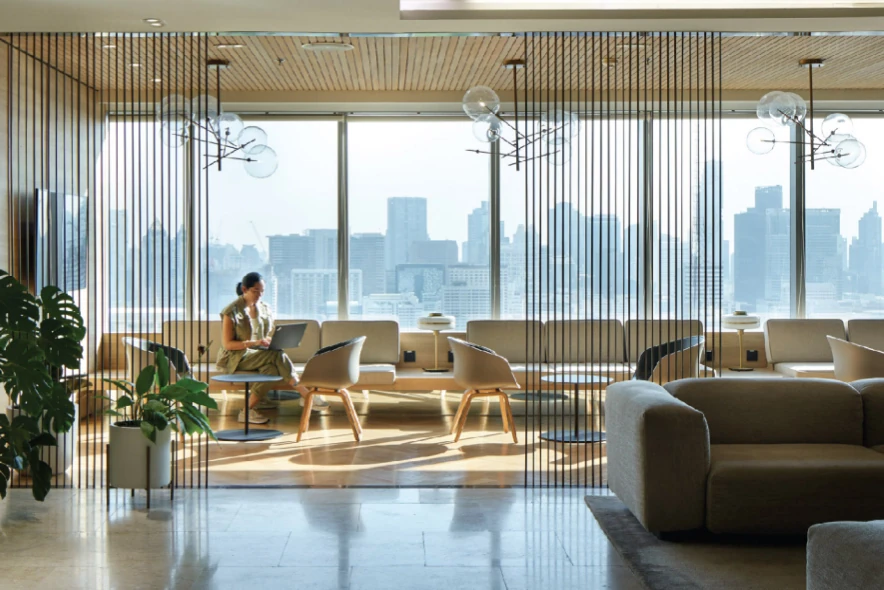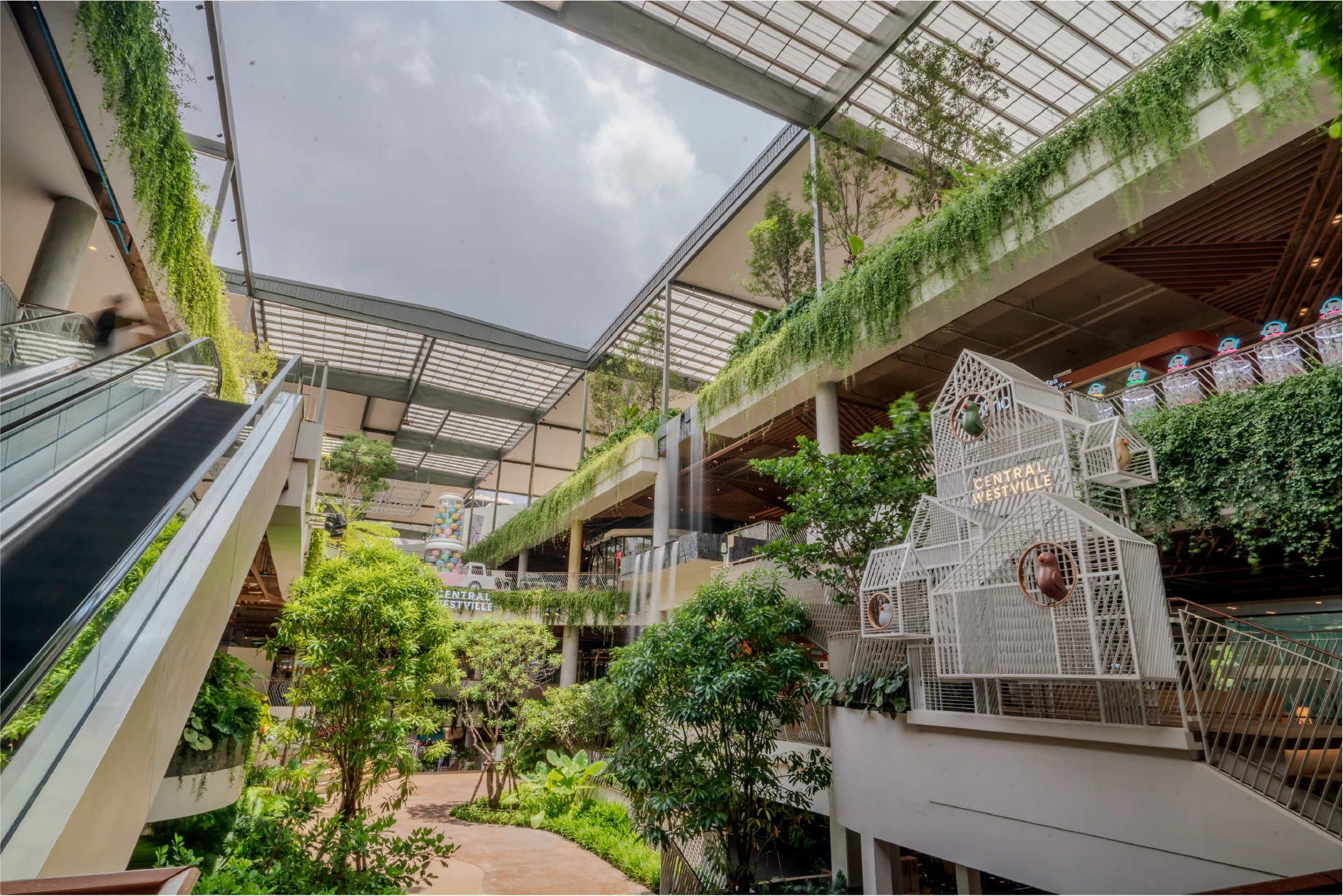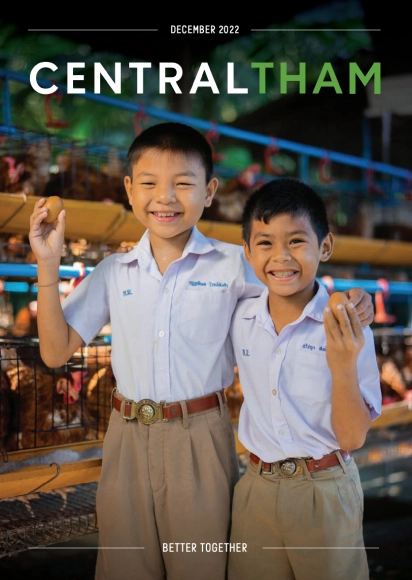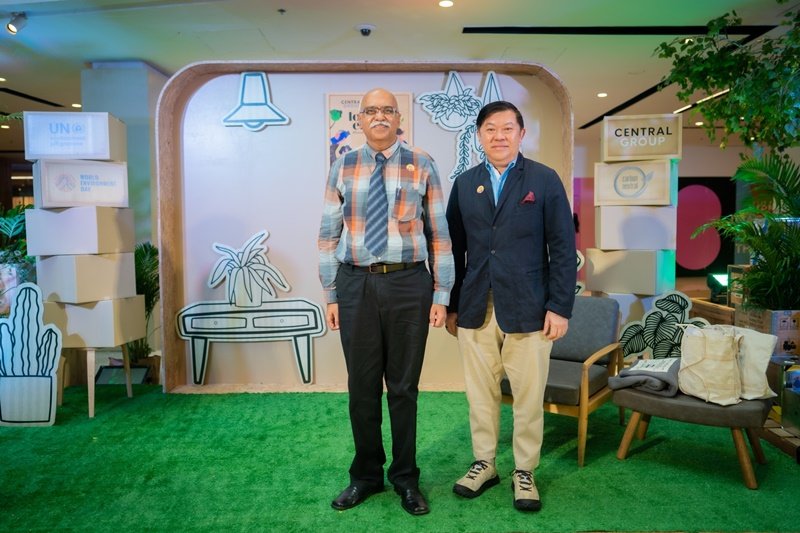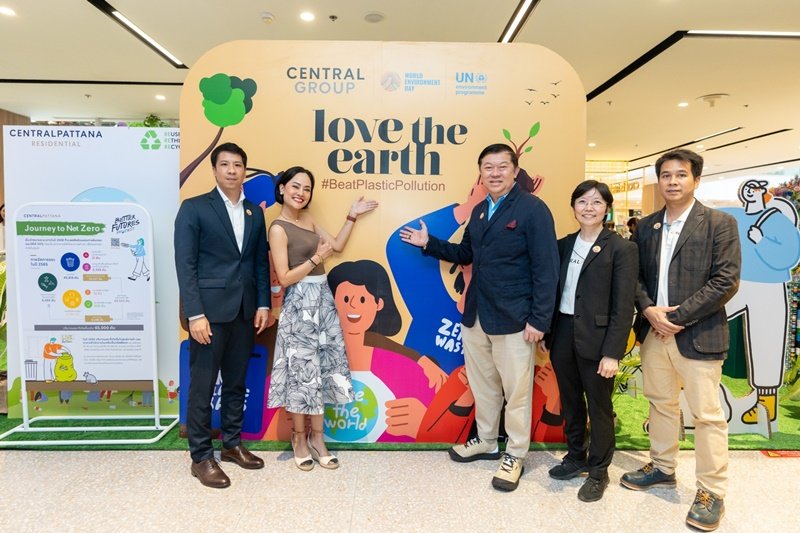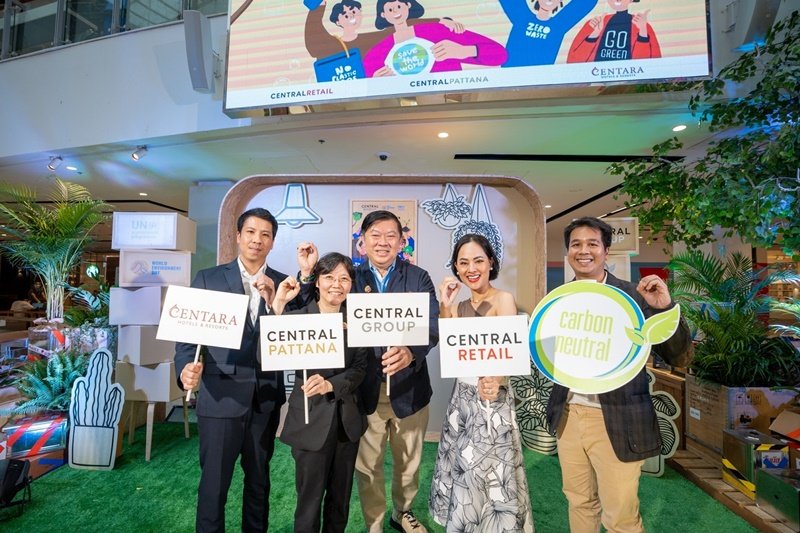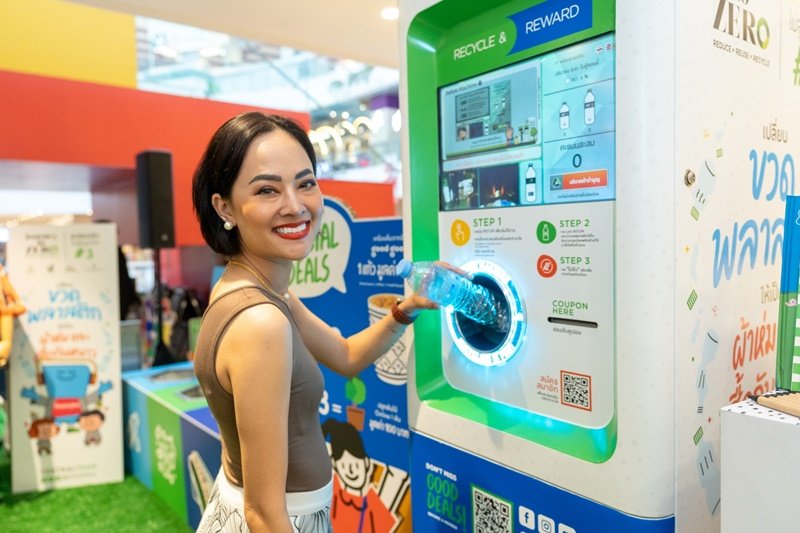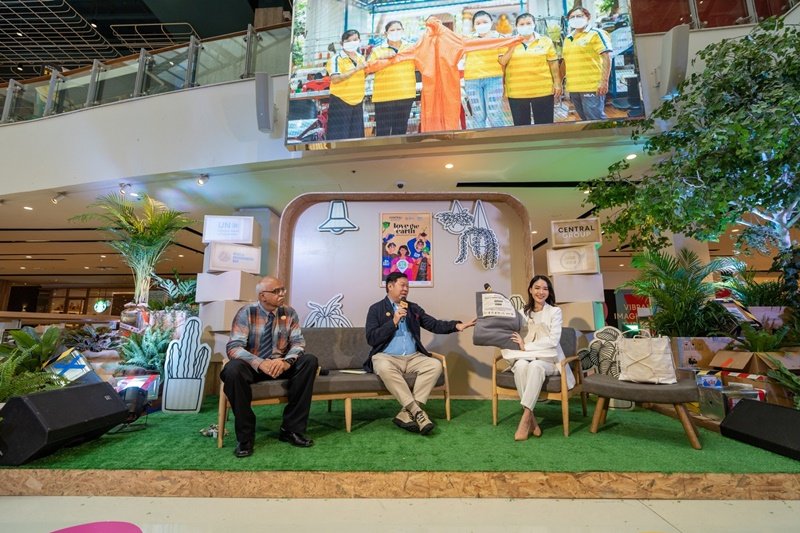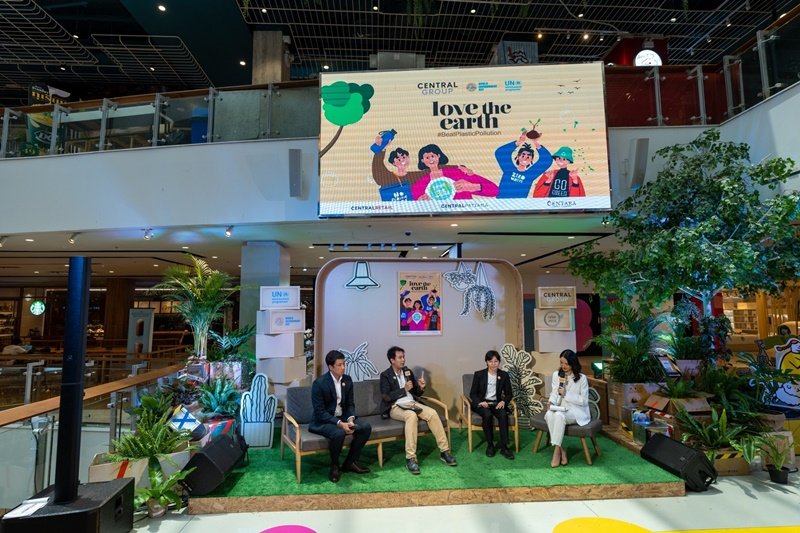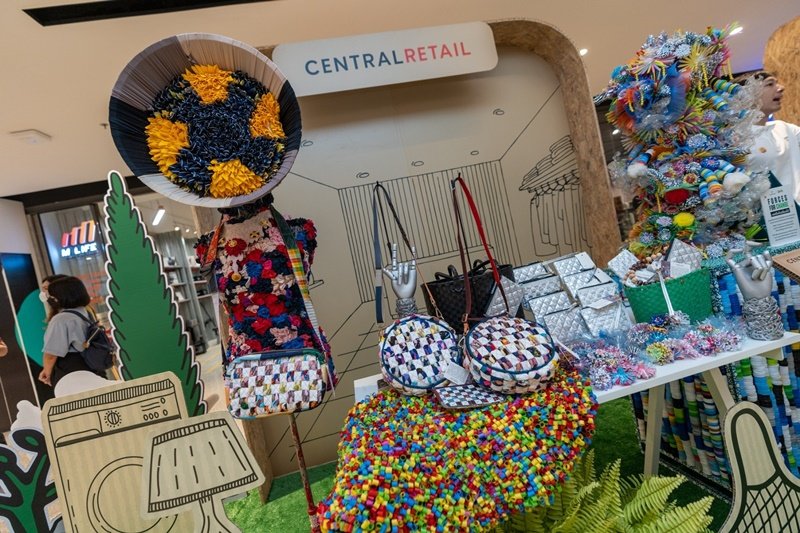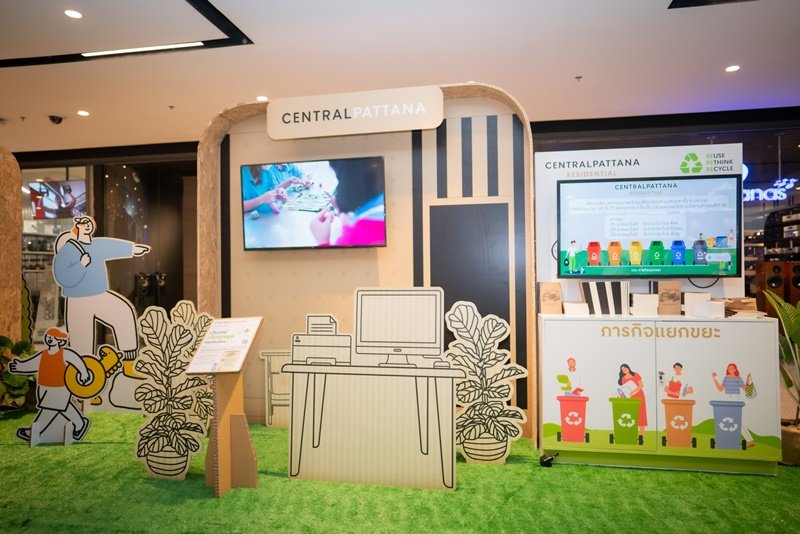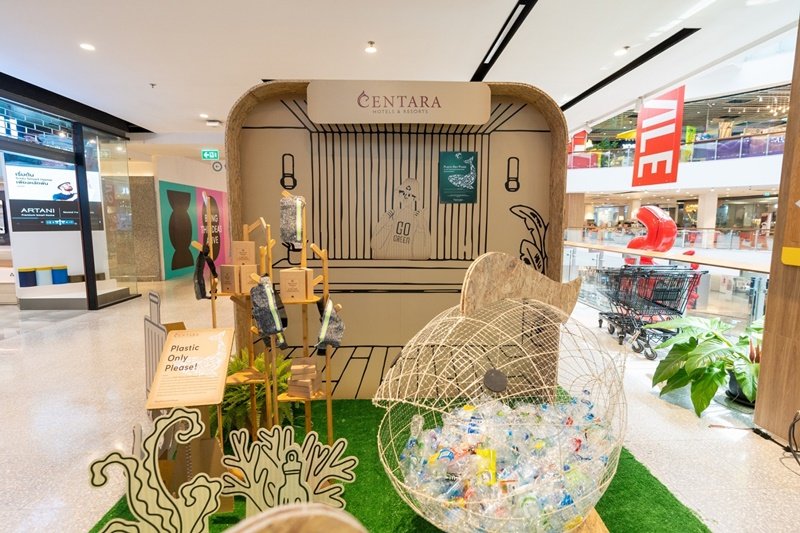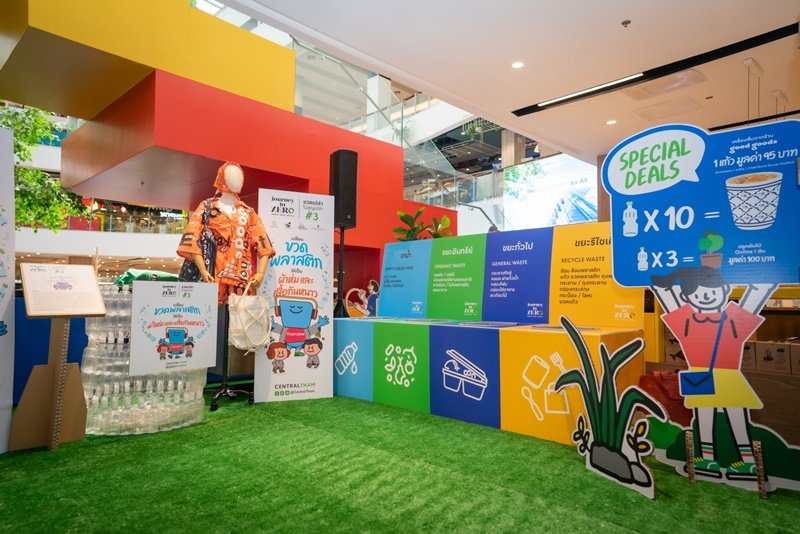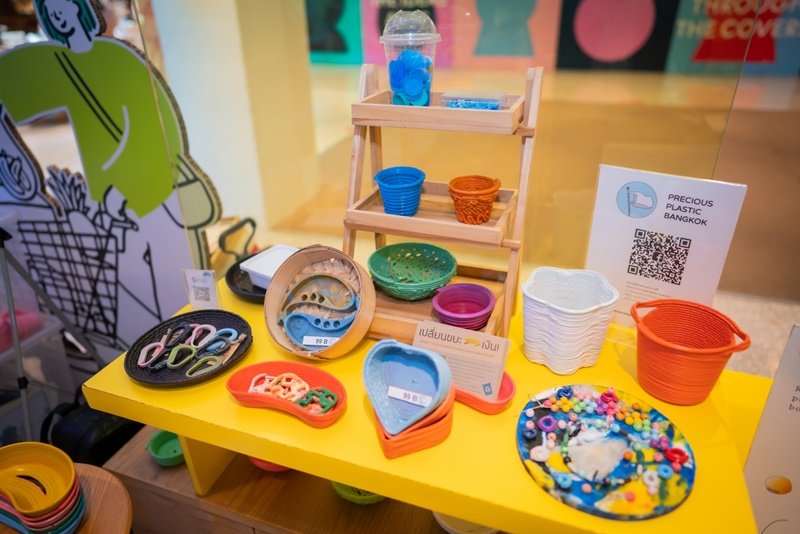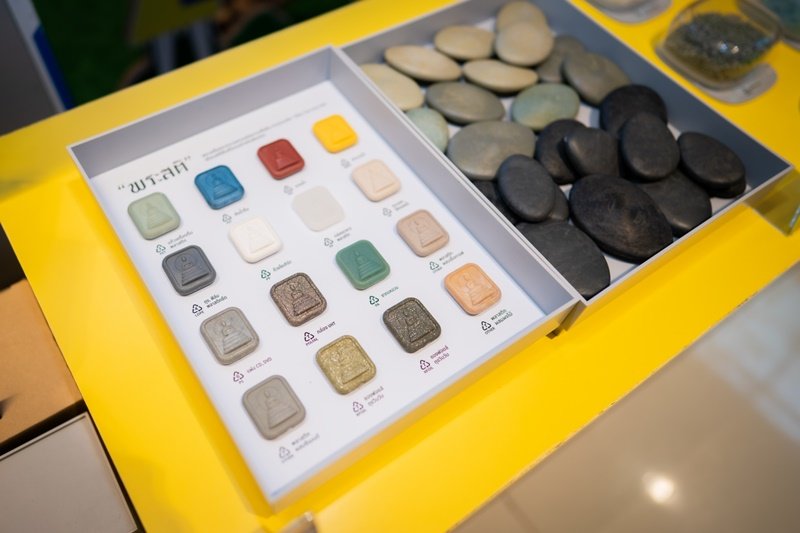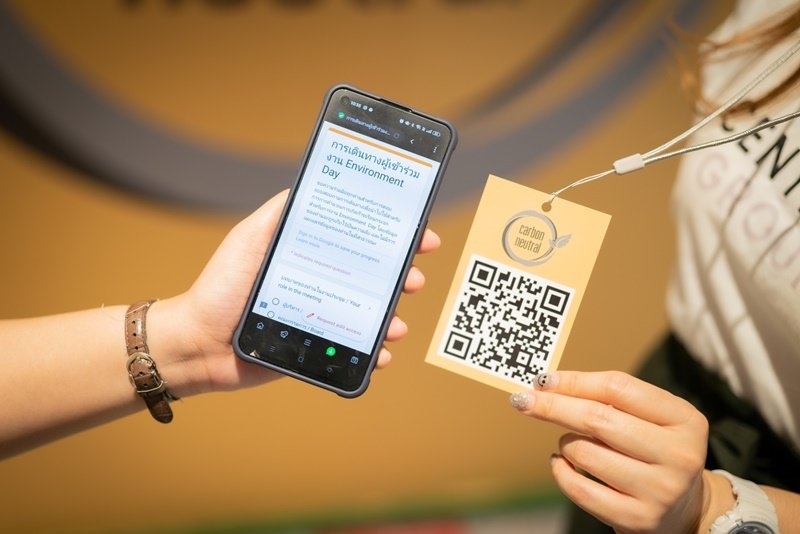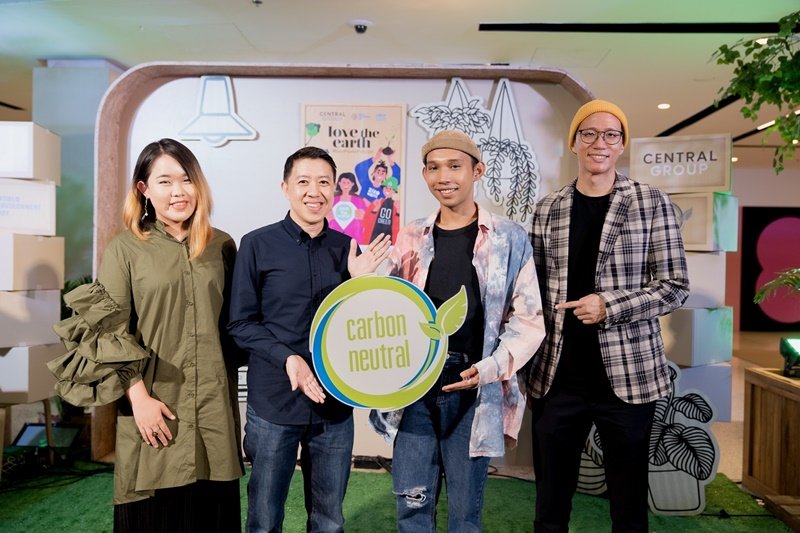Central Group and its affiliates, along with UNEP, invite you to change your lifestyle to be kinder to the environment within the framework of the "Love the Earth"
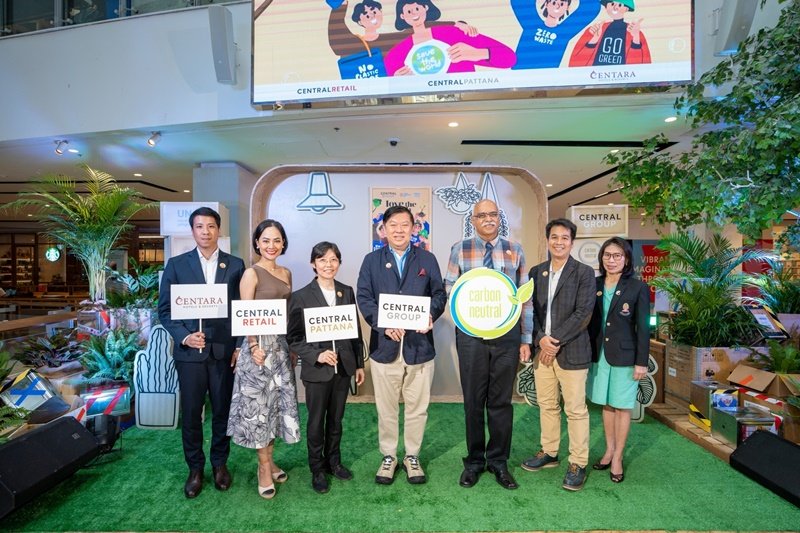
Central Group and its affiliates, in collaboration with UNEP (United Nations Environment Programme), invite everyone to join Central Group in the campaign "Love the Earth" under the theme Beat Plastic Pollution, which is part of Central Group's environmental policy moving forward to Net Zero 2050. The campaign promotes sustainability by hosting a carbon-neutral event on World Environment Day, recognizing waste segregation, recycling plastic bottles into useful items, giving away trees to increase forest cover, and advocating long-term environmental management schemes.
Mr. Pichai Chirathivat, Executive Director of the Central Group, stated, "The world's plastic problem reflects an increase in plastic waste, which is still a major issue and has always affected the global system. Central Group and its partners in the government and business sectors have consistently promoted awareness and encouraged action to prevent environmental degradation caused by plastic." The mission of the operation is to drive environmental policy by implementing various projects and business operations of the affiliated companies, which include Central Retail Corporation Public Company Limited, Central Pattana Public Company Limited, and Central Plaza Hotel Company Public Company Limited." Their coping strategies, directions, policies for sustainable environmental management, and objectives are as follows:
1. Policies and guidelines for coping with the problem of increasing plastic waste:
Central Retail Corporation Public Company Limited (CRC) focuses on 3 key areas: waste reduction, environmentally friendly packaging, and recycling collection.
- Waste Reduction: CRC begins with aiming to reduce the use of plastic bags by running the Say No to Plastic Bags campaign and other initiatives to limit the usage of single-use plastics.
- Use of environmentally friendly packaging: CRC encourages both manufacturers and consumers to understand and participate in environmental conservation, and it publicizes helpful consumer information and environmental certification standards on product labels, making it easier for consumers to make decisions about environmentally friendly products.
- Recycling: CRC has implemented a sorting program for the collection of recyclable materials and has begun testing a business-related waste collection project that can be recycled into products, such as discarded plastic bottles that have been used to create 3 different types of products: bags, blankets, and vests.
Central Pattana Public Company Limited (CPN), the developer of Central's department stores, residences, office buildings, and hotels across the country, focuses on property development and sustainable urban development under its motto "Imagining Better Futures for All." The company considers reducing environmental impacts as well as integrating circular economy approaches to achieve the goal of zero waste sent to landfills by advancing the Journey to Zero project to the Journey to Net Zero project, which is part of its long-term plan to become a net zero emission organization. CPN has set a long-term objective of reducing landfill waste by 50 percent of total waste taken from the organization by 2025, with a short-term aim of reducing landfill waste by 35 percent of total waste in 2023.
Central Plaza Hotel Public Company Limited (CENTEL) has a systematic waste management policy and establishes guidelines for each hotel to have waste sorted before bringing the orphaned waste to landfills, in accordance with the principle of reducing waste at the source (Waste Minimization), which consists of Prevention: refuse to make waste, Reduce: if you can't prevent causing trash, cut back on your consumption, Reuse: use something more than once, and Recycle: Place recyclable waste in the recycling bin. Furthermore, different types of waste from CENTEL are tracked in its sustainability data collection system. Each hotel is required to sort its garbage into four categories: 1) recyclable waste such as cardboard, plastic, aluminum, glass, and used oil; 2) organic waste such as food scraps, vegetable scraps, and fruit peels; 3) general waste; and 4) hazardous waste such as light bulbs, batteries, and chemical tanks.
2. Successful implementation of environmental policies by Central Group affiliates:
- Central Retail Corporation Public Company Limited has reduced the usage of single-use plastics significantly, boosted the availability of environmentally-friendly products, and created an effective circular economic system. These reforms have made a positive impact on the environment, assisted customers in making more sustainable purchases, and increased accountability and cooperation among stakeholders across the value chain. CRC is committed to growing and making steady progress toward a more sustainable future. The Upcycling Product initiative has decreased plastic waste by up to 67,628 bottles, and the Samui Zero Waste Model has reduced organic waste by 41.7 tons, which is comparable to reducing greenhouse gas emissions by 105.51 tons of carbon dioxide equivalent.
- Central Pattana Public Company Limited has been actively pursuing the Journey to Zero project since 2020. Last year, CPN’s waste reduction implementations through the Journey to Zero operation, in collaboration with shops and other partners, the Organic Waste Separation project with local government organizations and farmers, and the Mai Tae Ruom (must separate your trash) of Bangkok, were able to reduce more than 6,000 tons of organic waste to landfills, including recyclable waste and refuse-derived fuel (RDF), for a total of 18,182 tons.
- Central Plaza Hotel Public Company Limited has banned the use of single-use plastics by eliminating the use of plastic straws, switching the packaging provided in rooms, such as soap and shampoo, from single-use small plastic bottles to reusable pump bottles, replacing plastic laundry bags in rooms with fabric laundry bags, and using environmentally friendly or biodegradable food packaging. CENTEL has also committed to eliminating 100% of single-use plastic supplies from its hotels by 2025. Furthermore, on World Environment Day 2023, the hotel is launching the "POP, Plastic Only Please!" campaign, featuring a bin shaped like a sea fish named "POP" to raise awareness of waste management and reduce the use of single-use plastics by inviting everyone to help separate plastic waste and drop it in the POP fish. This POP fish campaign runs from June 5th to June 30th, 2023.
3. Directions and goals for environmental management
- Central Retail Corporation Public Company Limited's main goal is to attain net zero greenhouse gas emissions by 2050. To accomplish this goal, the company has developed the ReNEW strategy, which includes ways to reduce greenhouse gas emissions in its business operations, beginning with the use of clean energy, such as the installation of solar cells on the roof to generate electricity, using environmentally friendly transportation, such as electric vehicles, reducing the use of resources and using them efficiently, investing in things that do not harm the environment, and in businesses that promote environmental awareness. CRC has established a target of using only environmentally friendly packaging in its commercial operations and rehabilitating 50,000 hectares of green space for carbon sequestration by 2030. In addition, the company intends to considerably reduce its carbon footprint and contribute to the transition to a low-emissions economy.
- Central Pattana Public Company Limited has established a goal of achieving net zero based on scientific evidence. As a result, CPN aims to bring Science-based Target Setting, which is to set greenhouse gas reduction goals that are consistent with the Paris Agreement's clearly defined path to reduce emissions by keeping a global temperature rise this century well below 2 degrees Celsius above pre-industrial levels and pursuing efforts to limit the temperature increase even further to 1.5 degrees Celsius. The company is researching and comprehending both direct and indirect greenhouse gas emissions because the mission is challenging and must be comprehensive in order to meet the aim.
- Central Plaza Hotel Public Company Limited has established environmental management goals for energy consumption, water consumption, waste management, and greenhouse gas emissions in order to reduce negative impacts while creating positive benefits that return as much as possible to the environment. The first 10-year goal (2020-2029) is to reduce energy use, water use, waste to landfills, and greenhouse gas emissions by 20% compared to the base year 2019. In addition, CENTEL has other projects as follows: increasing the proportion of clean energy by installing a solar power generation system and reusing waste heat in the hot water production system; managing treated wastewater and reusing it for watering plants to save water use; managing waste to reduce waste to landfills; systematically sorting waste; installing organic waste disposal machines to convert food scraps into soil conditioners for tree nourishment and distribution to people around its hotels; using biogas to cook food in the hotel; and increasing green space by planting at least 100,000 trees within 2029.
Central Group celebrates World Environment Day 2023 by hosting carbon-neutral activities toward the Journey to Zero goal, such as employing environmentally responsible supplies in its event, reusing items after the event, and correctly recycling them. It also measures greenhouse gas emissions from all activities throughout the event, such as electricity use, participant transport, food and drinks, and waste generated during the event. Furthermore, Central Group will offset its greenhouse gas emissions to zero, serving as an example of a paradigm for environmentally responsible operations and reducing the impact of climate change.
Central Group and its affiliates, a full-fledged green retail and service business, are aiming for Net Zero in 2050 as part of Thailand's first all-inclusive environmental mission, while also adapting and reforming for a sustainable green world.

